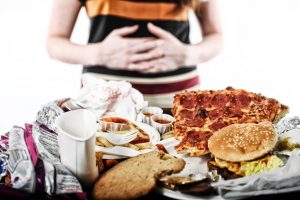Impulsive Behavior And Negative Urgency Predict Eating Disorders In College Women
 Individuals who struggle with eating disorders have various personality traits that make them prone to developing dangerous eating habits, one of which is impulsivity.
Individuals who struggle with eating disorders have various personality traits that make them prone to developing dangerous eating habits, one of which is impulsivity.
It is important to understand that impulsiveness is the product of a wide variety of factors, including genetics, family environment, stress and social influences.
Negative Urgency
Researchers have been looking into the different dimensions of impulsivity and have found that one specific component of this behavior, called negative urgency (NU), could be a major influence in the actions of people who suffer from eating disorders. Negative urgency refers to the tendency of an individual to behave impulsively in response to negative emotions.
Individuals with high levels of negative urgency tend to lose control over their behavior when experiencing sadness, anger, fear or other similar emotions. NU is believed to be a key factor that contributes to the onset and upkeep of risky and addictive behaviors, like substance abuse and eating disorders. Negative urgency has also been shown to be a counter-productive coping mechanism that occurs when people look to engage in coping patterns that provide immediate, but adverse, results in the long run.
An Adverse Coping Strategy
Sarah Fischer of the Department of Psychology at the University of Georgia has been conducting research on negative urgency and how it affects eating habits in college women. Fischer focuses on women who have just entered college because of the immense amount of pressure and stress they undergo during the first year.
Fischer looked at the eating patterns of women and found that those with high levels of negative urgency were more likely to engage in binge eating than those with little or no NU. Furthermore, Fischer discovered that there was a strong connection between high levels of negative urgency, binging and restricting in women even if there was no previous history of eating disorders.
She also looked into the correlation between expectations of thinness and high levels of NU and found that they could be used to predict how likely a woman was to develop an eating disorder. Fischer noticed that women with higher rates of NU and thinness-prone attitudes engaged in purging more frequently than women who had moderate expectations of thinness and low levels of NU.
The overall results of the study suggest that a woman’s expectation of thinness could be a focus for future intervention and prevention treatments.
Sources: GoodTherapy.org and PsychotherapyBrownBag.com
 Eating Disorder Self Test. Take the EAT-26 self test to see if you might have eating disorder symptoms that might require professional evaluation. All answers are confidential.
Eating Disorder Self Test. Take the EAT-26 self test to see if you might have eating disorder symptoms that might require professional evaluation. All answers are confidential.